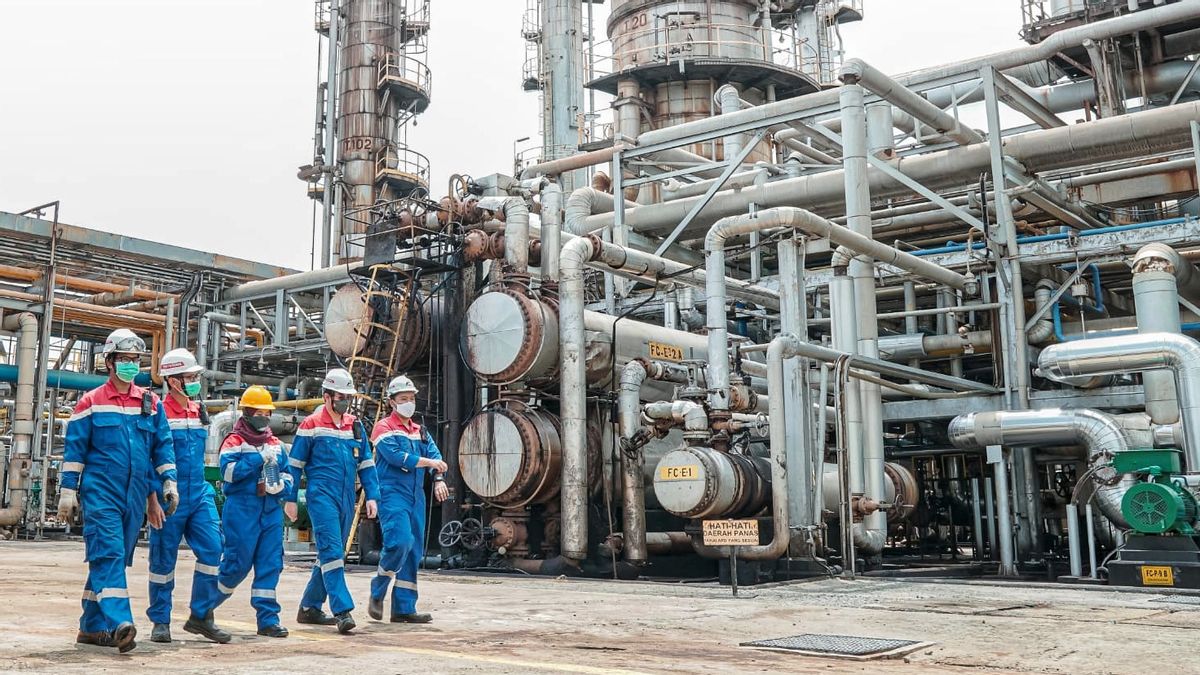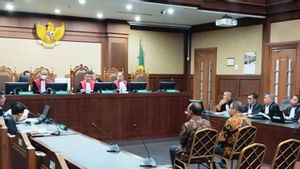JAKARTA - PT Pertamina (Persero) has developed technology to produce Fluid Catalytic Cracking (FCC) catalysts. FCC catalyst is a substance to accelerate the rate of chemical reactions used in the processing of oil and gas products under certain operating conditions.
In the processing process, FCC catalyst functions to break down the heavy fraction "crack" of petroleum which has a high molecular weight and boiling point into high value products such as gasoline, LPG, olefins, and also petrochemical products.
Currently, Pertamina's Research Technology & Innovation (RTI) function together with Pertamina's Subholding Refining & Petrochemical, PT Refinery Pertamina Internasional (KPI) have tested the FCC catalyst at the Plaju Refinery with an injection volume of 250 MT.
This injection process has been going on for three months from December 2021 to February 2022, where the performance of the catalyst has proven to be successful in improving the performance of the FCC unit at the Plaju refinery in terms of gasoline yield and gasoline RON parameters.
Senior Vice President of RTI Pertamina, Oki Muraza explained that the FCC Pertamina Catalyst formulation has gone through a series of processes from the formulation stage to laboratory scale testing since 2016.
"Furthermore, a pilot plant scale was carried out as well as through the validation of international institutions and the formulation was successfully formulated in accordance with the needs of the Plaju refinery," he said in a written statement quoted on Sunday, February 27.
Pertamina's Vice President of Corporate Communication, Fajriyah Usman, conveyed that mastery of FCC catalyst technology independently is an innovation that is very beneficial for the Indonesian oil and gas industry considering that currently the need for FCC catalysts is still met through imports.
In the future, Pertamina's FCC catalyst is expected to meet the needs of the oil refining and petrochemical industry catalysts.
"Pertamina has high hopes that the development of FCC catalysts in the future will be able to support increased petrochemical production in the energy transition era, reduce dependence on imported catalysts for national industrial needs while supporting national energy security and independence," concluded Fajriyah.
The English, Chinese, Japanese, Arabic, and French versions are automatically generated by the AI. So there may still be inaccuracies in translating, please always see Indonesian as our main language. (system supported by DigitalSiber.id)













